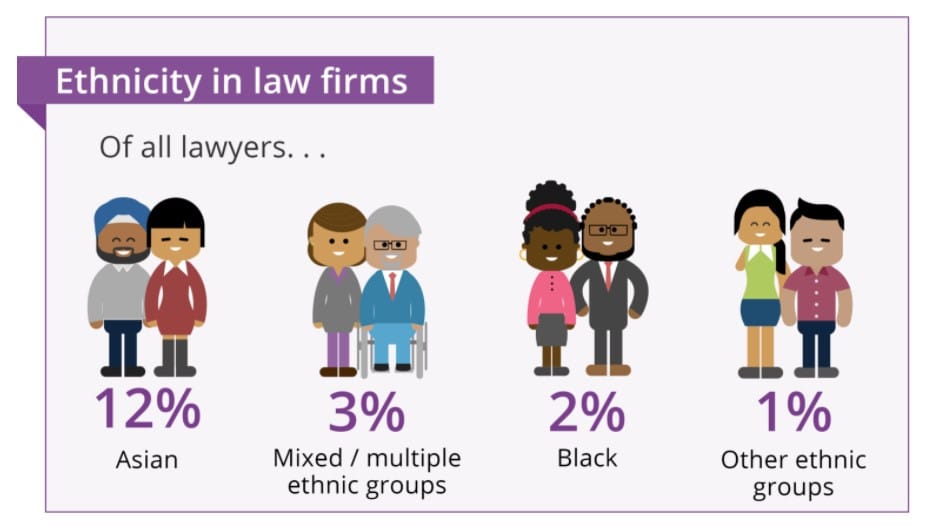Outfits with 50+ partners have fewer BAME and female partners than smaller firms

Big law firms are lagging ever further behind when it comes to diversity at the top, the Solicitors Regulation Authority has found.
The SRA’s latest diversity survey shows that 8% of partners at the largest firms in England and Wales are Black, Asian or from another ethnic minority, compared to 23% at small firms and 35% of single-partner outfits.
While both the largest and smallest firms recorded an increase in BAME partners compared to 2019, the rise was much greater for the latter — meaning that the diversity gap increased.
The SRA defines “largest firms” as having 50+ partners and found that just 4% are Asian and 1% Black.
Among solicitors as a whole, Asian and mixed-race people are statistically over-represented compared to their share of the working-age population, while Black and “other” ethnicities are under-represented.

Megafirms also look a bit suspect on other measures of diversity. Over half the solicitors at outfits with 50+ partners are female, but less than one third of partners.
The SRA also says that the largest law firms have “a smaller proportion of disabled lawyers” and “the greatest proportion of lawyers from a professional socio-economic background, and those who went to independent/fee-paying schools”.
SRA chair Anna Bradley said:
“Diversity for Black, Asian and minority ethnic solicitors and women at senior levels is a particular challenge at large firms. We know that many firms have excellent initiatives in place to address progression and retention, but there is clearly more to be done.”
The regulator collected over 180,000 survey responses from almost 9,000 firms in England and Wales.
Its findings follow hard on the heels of an equivalent report for barristers showing that diversity at the bar continues to creep up slowly.


